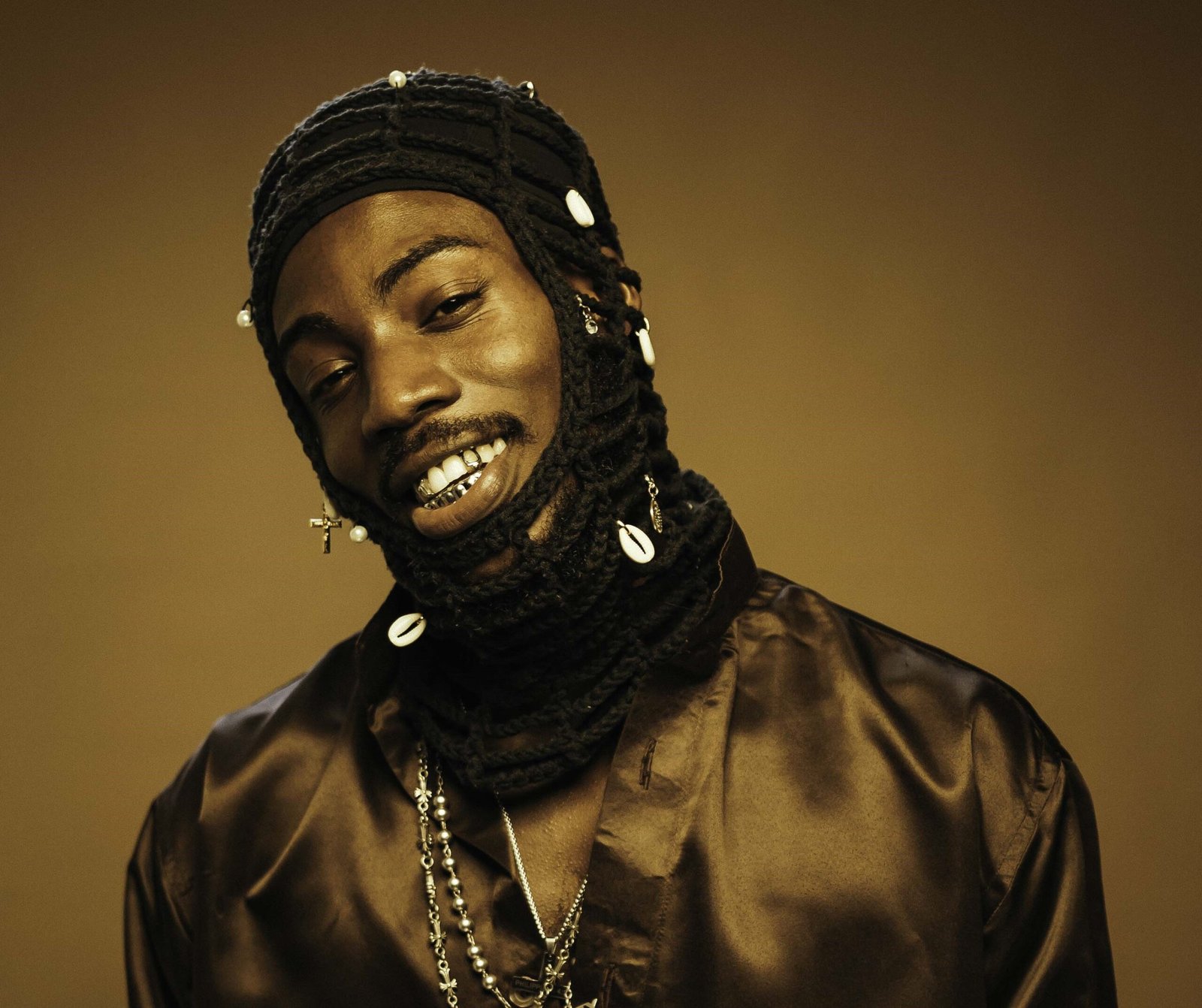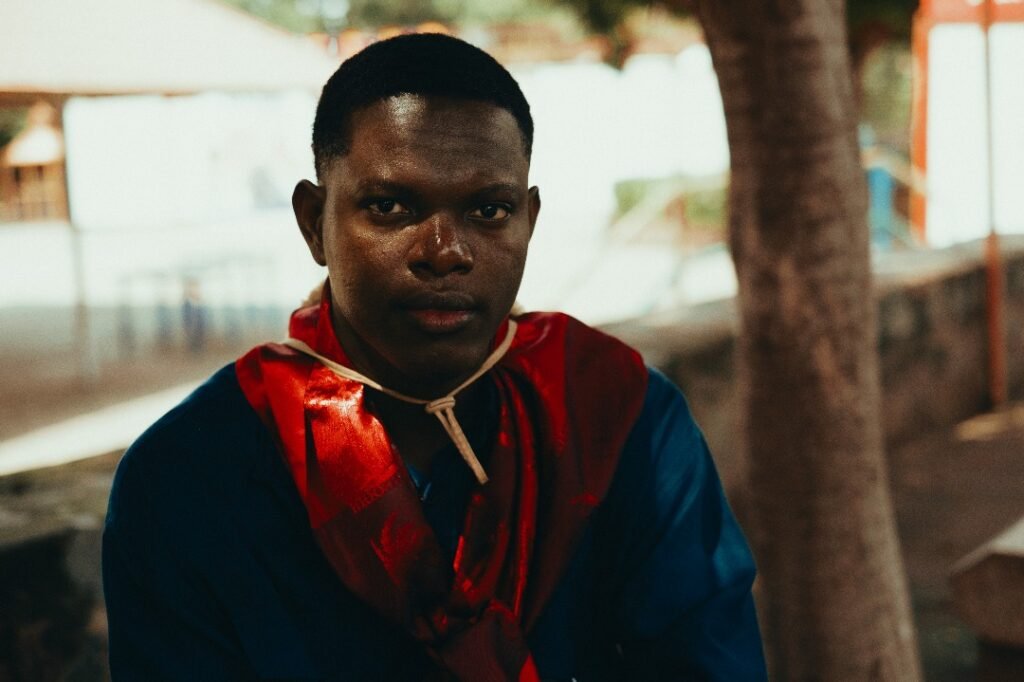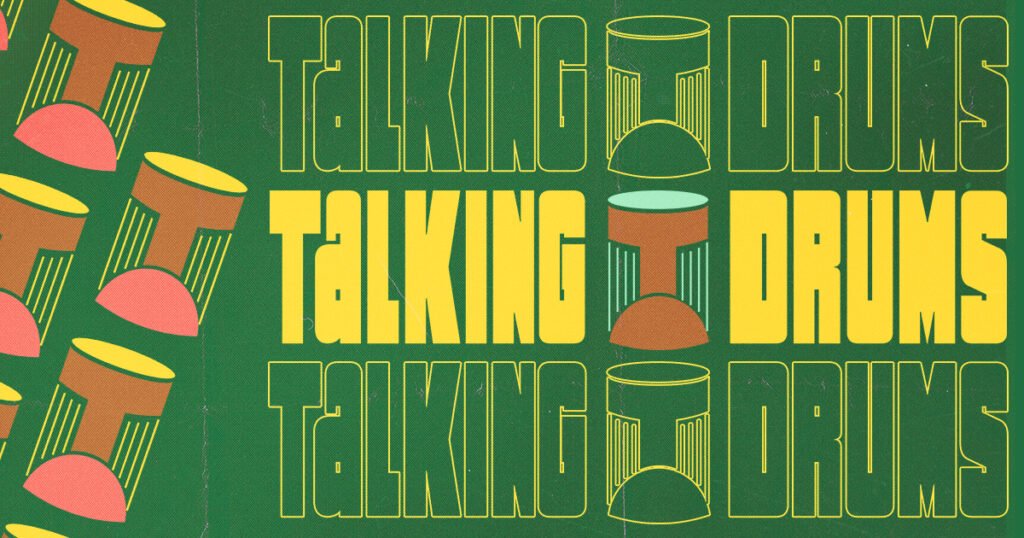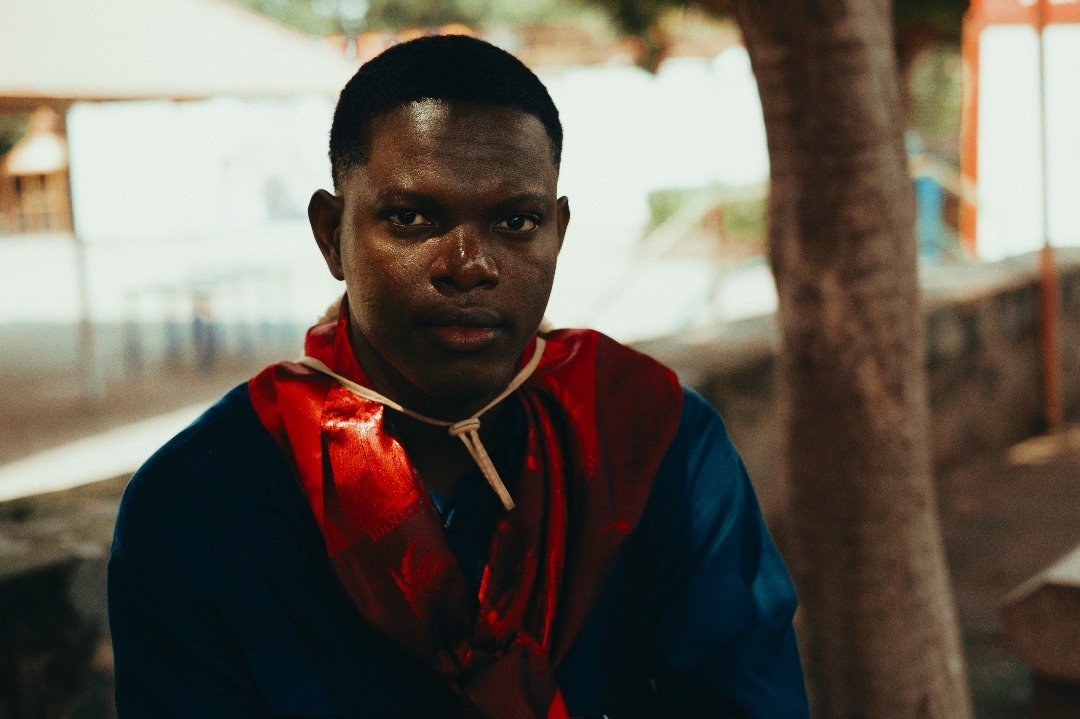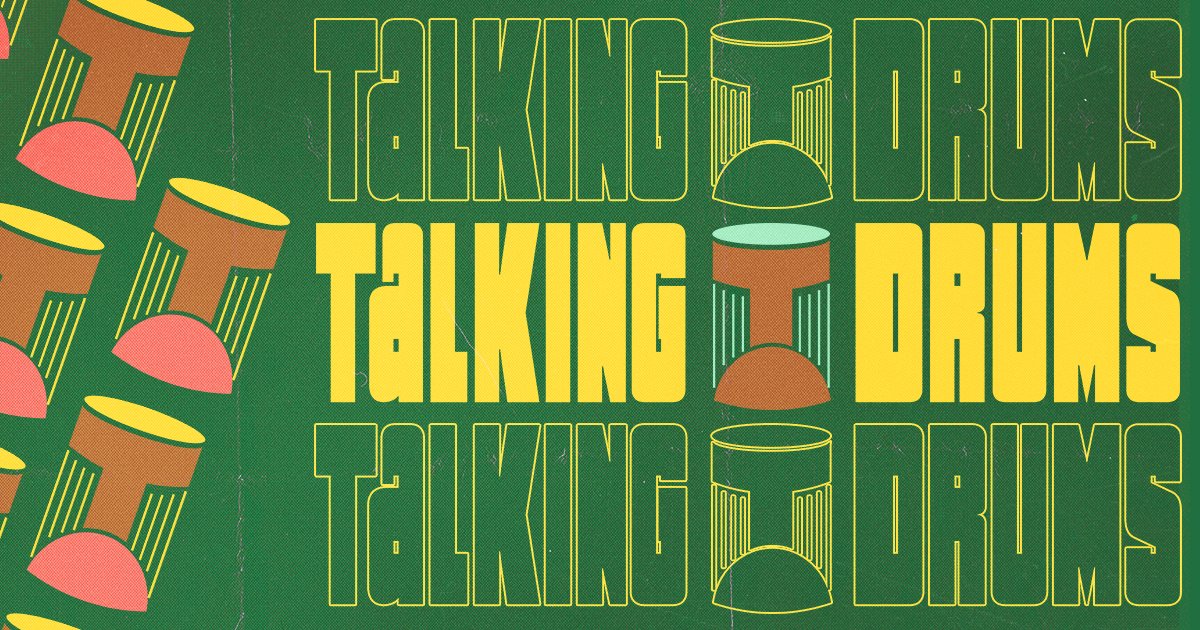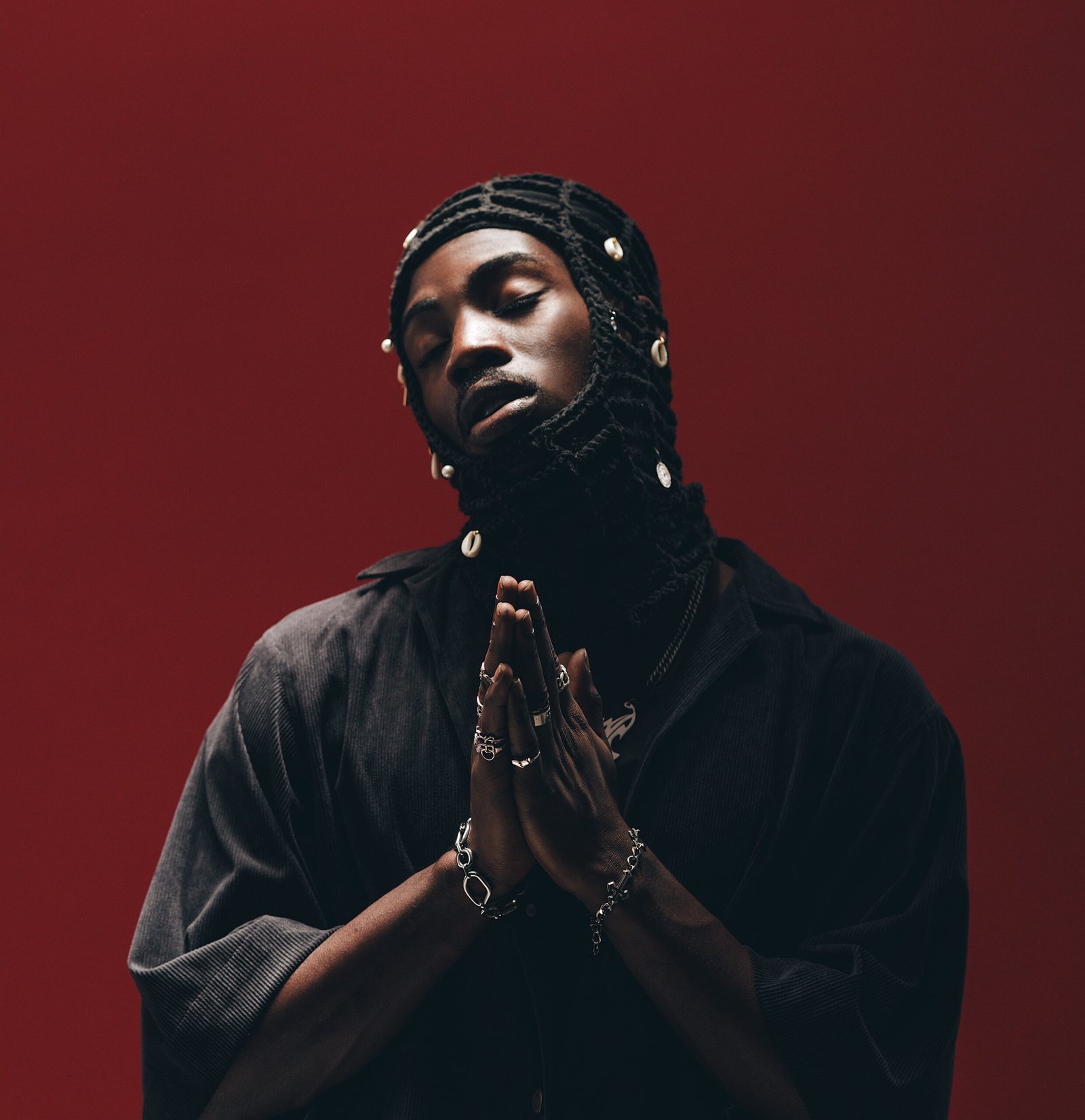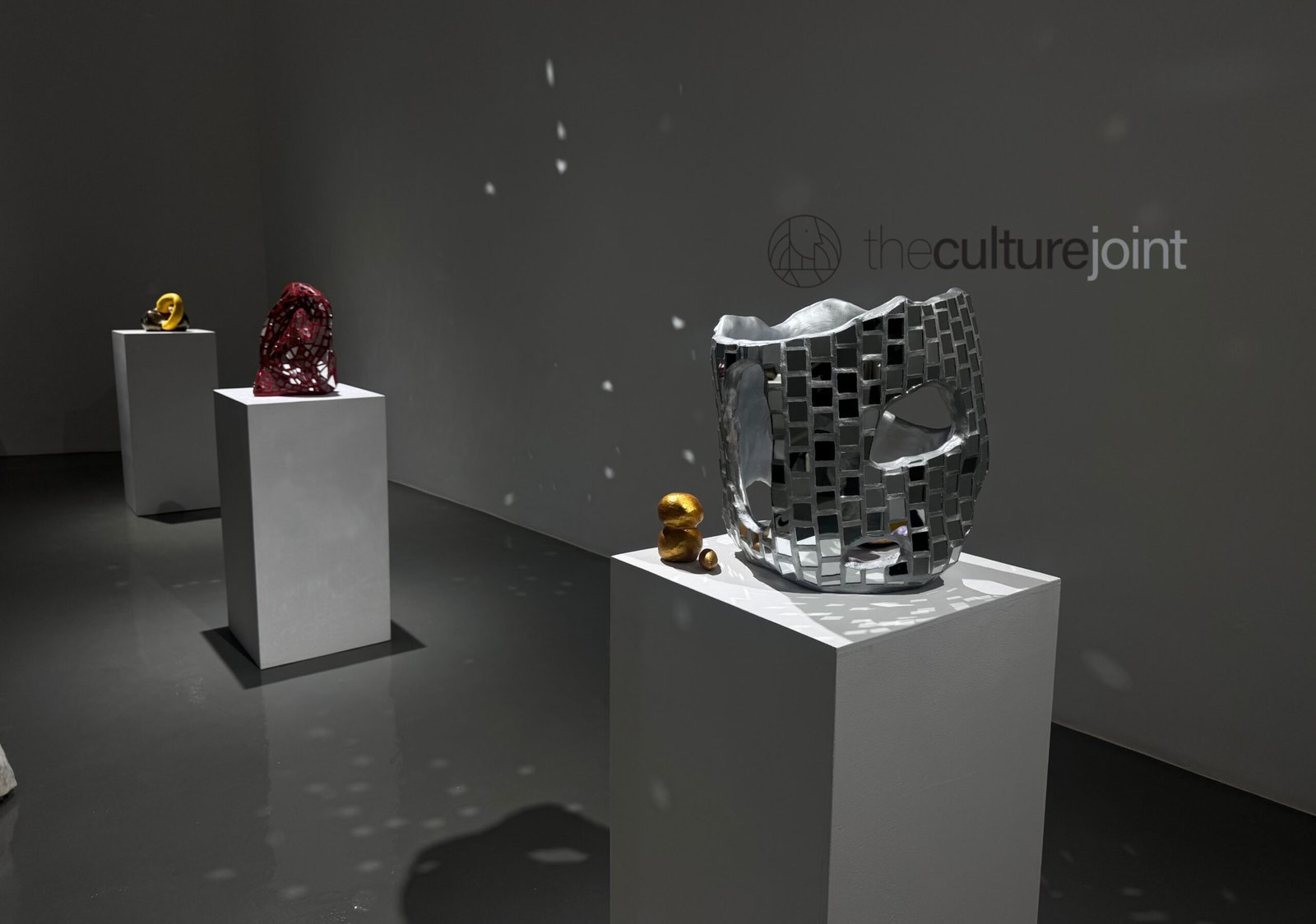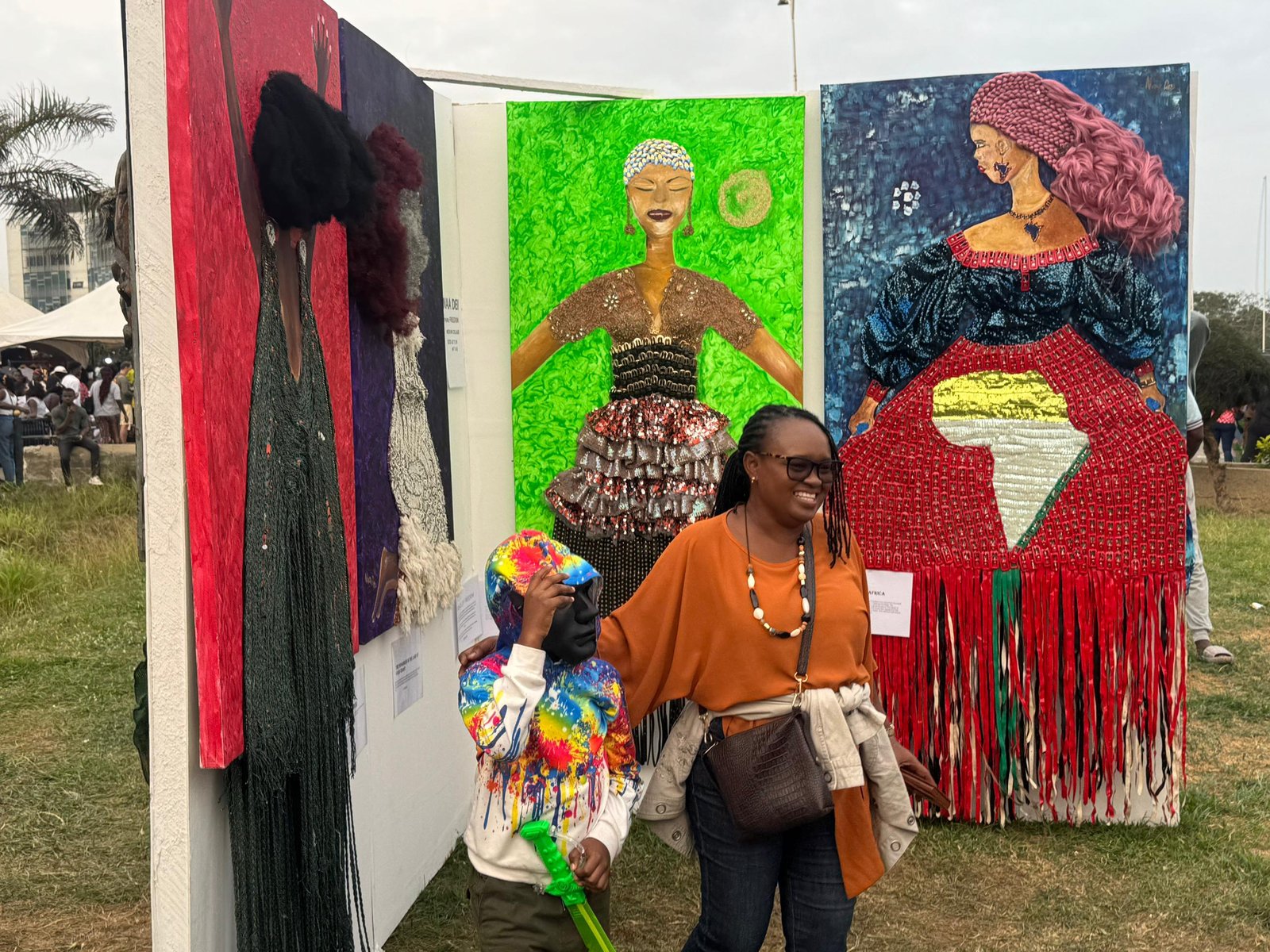As African music continues its global ascendancy, GQ explores the meteoric rise of Ghana’s most enigmatic new voice, AratheJay. The masked artist blends the famed Ghanaian Highlife with innovation while keeping his eyes fixed on a higher purpose.
On a humid day in the capital, Accra, I joined AratheJay’s crew for Spotify’s “Jollof x Jama” shot with Ghanaian rap icon M.anifest. AratheJay is in the backseat, with his trademark crocheted balaclava pulled down and his face carved out. He bounces between filming content, sending voice notes and engaging me with a surprisingly animated conversation about destiny.
“Bro you know what I have realized?” he turns to me. “It is so good to be hot, but fulfillment to me is about lasting and being impactful with my talent I have. It is why my faith is felt in my songs. I want to reach the world with God’s purpose. I have so much faith in this.”
In a year full of surprise drops and fast risers, AratheJay has managed to stand out by embracing his Ghanaian heritage. Throughout our time together, AratheJay displayed a perfect balance of engaging warmth and reserved introspection. “Faith, grace, and love can never be compromised,” he establishes early in our conversation; principles that shape not only his personality but permeate his art.
As the brilliant writer Nneamaka Nwaokolo once observed, “Artists are their art and art is, after all, an extension of an artist’s experiences, beliefs, and emotions.” AratheJay is living proof of this seamless integration between creator and creation.
The Ghanaian talent has been generating significant buzz since the release of his debut EP, “Finding Nimo Series: The Capsule.” However, his collaboration with Black Sherif on “Jesus Christ II” – a faith-fueled record that carries weight truly flared people’s attention. “It is personal,” he says. “That song is like a prayer for me. I knew I had to drop it as my first release of the year. Everything that followed was grace.”
Though critics and legends alike have hailed him as a harbinger of the Hiplife/Highlife renaissance, his range proves to swing along with other genres like Afrobeats fusions and trap sounds.
2024 marked a breakthrough year for AratheJay, with spotlight features as Apple Music’s “Up Next: Ghana Artist” in October 2024 and “Africa Rising Class of 2025” while “Jesus Christ II” earned a spot in Apple Music’s “Africa Now: Best of 2024”. Spotify placed him on its Artist Radar, and he concluded the year with a triumphant sold-out headline concert aptly titled “Nimo Live.”
Not one to rest on his laurels, 2025 has already seen him collaborate with Nigerian star Bella Shmurda on “Fire” while also featuring on tracks with M.anifest and Nigeria’s T.I. Blaze.
As we settle into our conversation, we explore the journey that brought this enigmatic artist to the forefront of African music’s new wave.
GQ: Congratulations Ara on a splendour music year. In your own words, how was 2024?
AratheJay: 2024 was crazy in a good way. Dropped my first EP, collaborated with some of the dopest artists out there. Everything seemed to be moving so fast but I believe it was just in time for God’s plan.
GQ: Everyone has a story, especially creatives so let’s paint a picture. Take us back to your childhood. What is a sound, a smell or a visual memory that you feel is intrinsically linked to your early connection with music?
AratheJay: As a musician I would definitely want to focus on sound. My grandpa’s love for the accordion drew me to music. Watching how he played and sang zealously, inspired me a lot.
GQ: People who are familiar with your background know you grew up between Ghana and Kenya. How have the distinct cultural differences influenced your personality and artistry?
AratheJay: I don’t think I can tie my personality to any one place. But I believe we are products of our environment so it has definitely influenced parts of me. When it comes to my artistry, Kenya introduced me to a lot of dancehall music. I am crazy about Vybz Kartel. I am also heavily inspired by the Kenyan countryside, the safari. It is a great mental space to be sometimes when I am creating music. I think my time in Kenya also has some influence on my cadence in some songs. I really enjoy Swahili. Ghana, I believe has the biggest influence on me since I have spent most of my time here and you can hear it in all my songs. Whether it is the Twi, the Highlife, little Ga here and there, I am Ghanaian through and through.
GQ: Let us talk about the Balaclava. It is practically your second skin now. Is it an armour, an alter ego, or something else entirely?
AratheJay: Yes I love armour. It really is like my shield. If you have watched the movie “300” you would know whenever the Spartans picked up their shields it was time. The balaclava is my signal and once I put it on, I know it is time to lock in. So I have it mainly because I want people to focus on my music and message in it and not really focus on me.
GQ: What do your go-to fashion pieces or closet choices reveal about you?
AratheJay: I would say freedom. I love the freedom to explore what is on my heart. I think my go-to wear would be baggy jeans because it is in line with my freedom and audacity to dabble in different genres.
GQ: Your debut project, “Finding Nimo Series: The Capsule,” is an intriguing name. Who or what is Nimo, and why are we “finding” it?
AratheJay: Nimo is a reflection of the Highlife music in me. I see that to be the foundation of multiple genres and a building block for others. So in “Finding Nimo”, you come to know aspects of me that come together to make me a musician – and there is more to find out.
GQ: The EP received critical acclaim as people described it as a Highlife renaissance with a refreshing Afropop mosaic. What was the vision behind the EP?
AratheJay: Big Love to Andy Madjitey. In the cover art you can see a combination of clothing that is barely worn together. That really tells the story of the project. In making a capsule, many ingredients are fused together so anyone listening experiences it as a whole. That is essentially what I sought to do with it, intentionally blend genres sonically.
GQ: Few weeks after the project Ghanaians were rocked with the remix of “Jesus Christ” with Black Sherif. How did you approach remixing an already beloved track without losing its essence?
AratheJay: That song was and is dear to my heart. I was bent on making that my first personal release of 2024(I had been featured on other songs prior). It is interesting how everything played out after that. But big love to my brother Black Sherif forever. Music is spiritual and as musicians we carry a responsibility to convey divine messages through it. You might call it fate, I call it grace.
GQ: From promising a charting hit to headlining your debut concert “Nimo Live”, your 2024 feels like a masterclass in momentum. Did you ever feel overwhelmed or was this exactly how you envisioned it?
AratheJay: I am not overwhelmed at all. The job has never been easy and I have never been soft. This is what I am supposed to do right? Forward ever backwards never.
GQ: December 19 will gradually become synonymous with “Nimo Live”. What can fans expect from future editions of the concert?
AratheJay: Fans can expect to feel loved, appreciated and inspired. I want to say thank you to everyone who came to the first edition. Next edition will be bigger and better by God’s grace. Kaizen always. Be prepared to see and feel art.
GQ: You have performed on some of Ghana’s biggest stages, including AfroFuture, Zaama Disco and Manifestivies. What is the next dream stage or event on your bucket list?
AratheJay: Whatever wild stage you could imagine. Just name it. I want to perform at places you would not expect to even hear our type of music.
GQ: Success is not always glamorous. What has been the most challenging or unexpected hurdle you have faced, and how did you navigate it?
AratheJay: Like the late American rapper Nipsey Hustle said, “Never let a hard time humble us”. Like everyone else, I have my down days. As an artist I think my biggest hurdle is creating art to the extent I want to. It is the battle of feeling limited in what I can do with a message I want to convey in my art. At the same time I do not want to stop having this battle because it forces creativity out of me and my team. The only way I overcome this is by looking at the impact that the finished product has on the audience. But there is always something that could have been added.
GQ: What is one thing you want to achieve with your music that has nothing to do with fame or fortune?
AratheJay: I always pray my music gives divine experiences to the listeners; mend broken hearts, give peace , heal sicknesses, and other positive encounters.

